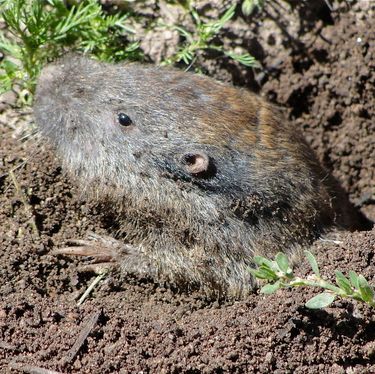Larry Young: The neurobiology of social bonding, empathy and social loss in monogamous voles

Thème:
Rodents
Mots-clés:
monogamyoxytocinempathyneurobiology
Quoi:
Talk
Quand:
4:00 PM, Lundi 2 Juil 2018
(1 heure 30 minutes)
Où:
Université du Québec à Montréal
- DS-R510

Larry Young (Speaker)
Emory University
Emory University

Jennifer Bartz (Discussant)
McGill University
McGill University
The socially monogamous prairie vole provides an opportunity to examine the neural and genetic mechanisms underlying complex social behaviors, including social bonding and empathy-related behaviors. Oxytocin receptor (OXTR) signaling in the nucleus accumbens (NAcc) is critical for pair bond formation between mates. Diversity in expression patterns within the brain contribute to diversity in social behaviors across and within species. In prairie voles, oxytocin links the neural encoding of the social signature of the partner with the rewarding aspects of mating through interactions with dopamine and by coordinating communication across a neural network linking social information with reward. We have also explored the capacity of prairie vole to display “empathy”-like behavior, specifically consoling. Prairie voles increase their partner-directed grooming toward mates that have experienced an unobserved stressor. This consoling response is abolished by blocking oxytocin receptor antagonist into the anterior cingulate cortex, a region involved in human empathy. Finally, loss of a bonded partner results in the development of depressive-like “grieving” behavior. Infusion of oxytocin into the NAcc prevents social loss-induced depression. Studies using intranasal oxytocin and behavioral genetics suggest that the role of oxytocin on social attachment and social cognition is conserved from rodent to man. The relationship between pair bonding and vole and romantic love in humans will be discussed.
Bartz, J. A., Zaki, J., Bolger, N., & Ochsner, K. N. (2011). Social effects of oxytocin in humans: context and person matter. Trends in Cognitive Sciences, 15(7), 301-309.
Barrett, C. E., Arambula, S. E., & Young, L. J. (2015). The oxytocin system promotes resilience to the effects of neonatal isolation on adult social attachment in female prairie voles. Translational psychiatry, 5(7), e606.
Burkett, J. P., Andari, E., Johnson, Z. V., Curry, D. C., de Waal, F. B., & Young, L. J. (2016). Oxytocin-dependent consolation behavior in rodents. Science, 351(6271), 375-378.
Bosch, O. J., Dabrowska, J., Modi, M. E., Johnson, Z. V., Keebaugh, A. C., Barrett, C. E., ... & Neumann, I. D. (2016). Oxytocin in the nucleus accumbens shell reverses CRFR2-evoked passive stress-coping after partner loss in monogamous male prairie voles. Psychoneuroendocrinology, 64, 66-78.
Sunahara, C., Zelkowitz, P., Bolger, N., Sadikaj, G., Samuel, S., Gold, I., ... & Bartz, J. A. (2018). Maternal oxytocin predicts relationship survival during the perinatal transition period: Preliminary evidence. International Journal of Psychophysiology.



